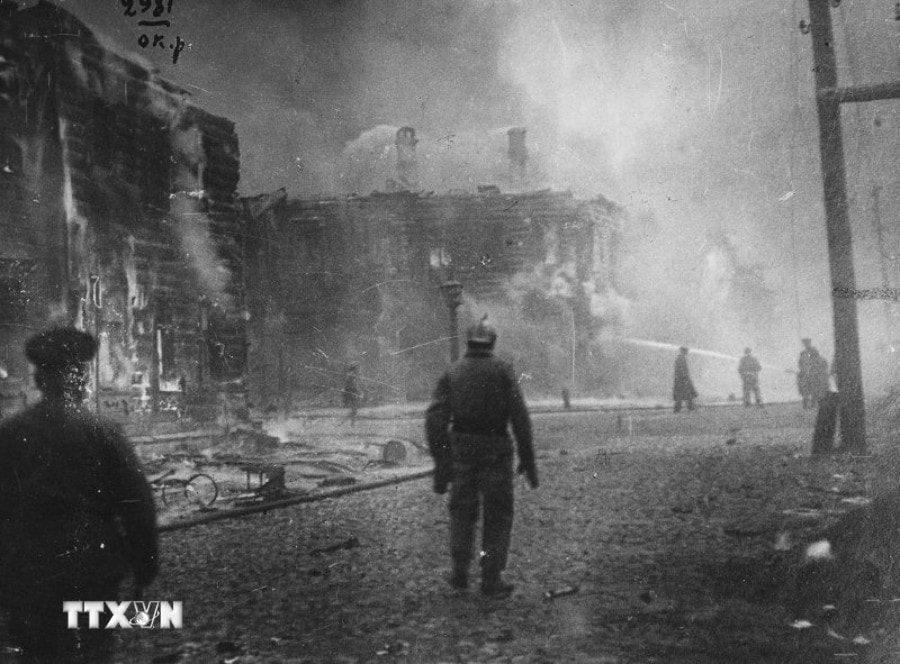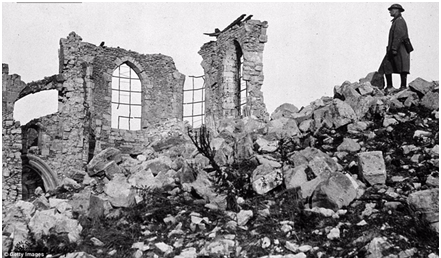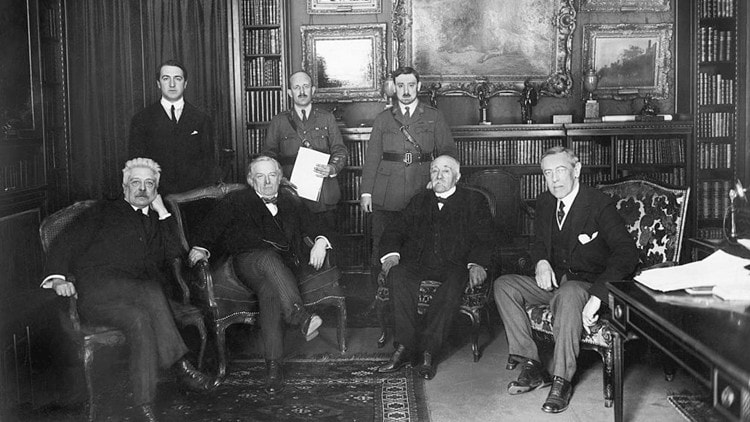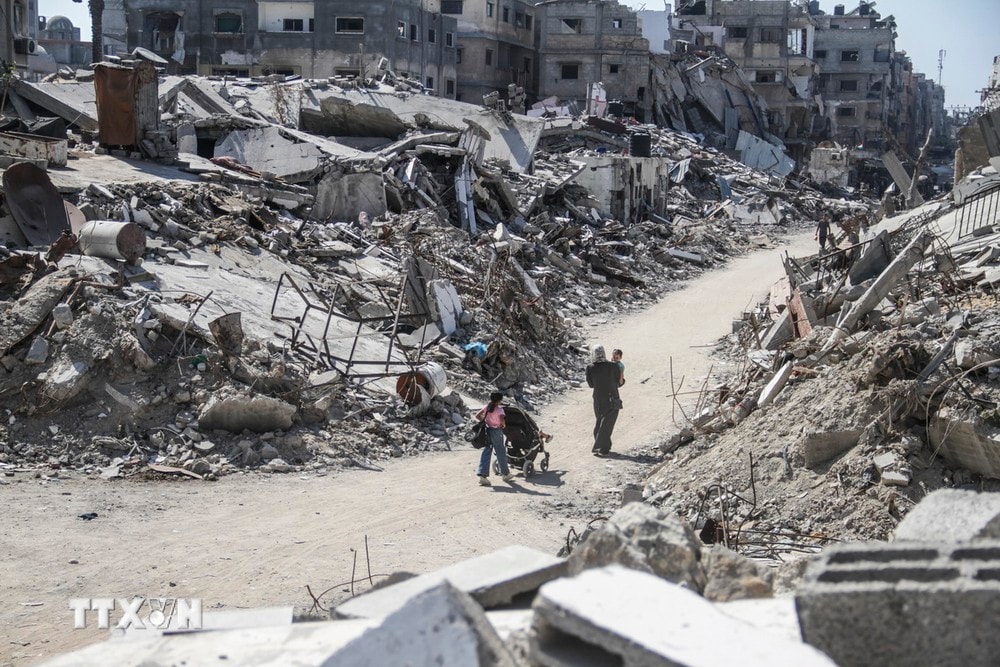In a context where geopolitical struggles and conflicting interests remain the cause of tension and conflict, the lessons of the war 110 years ago remain relevant.

110 years ago, on July 28, 1914, war broke out in Europe between the German-Austrian-Hungarian Central Alliance and the Anglo-French-Russian Entente, with the participation of major empires such as Britain, Germany, France, Russia, the Austro-Hungarian Empire and the Ottoman Empire (the predecessor of today's Turkey).
In reality, however, nearly 70 countries were drawn into the war in various forms, including Italy in 1915 and the United States in 1917.
In total, over 800 million people, or more than half of the population of the time, were involved in the war. It is known as the Great War or World War I because it affected people all over the world and was the largest war ever known.
Thousands of books written about the 1914-1918 war have sought to "assign responsibility" for the outbreak of war.
Conflicting interests among the major European empires and geopolitical ambitions are believed to be the main causes.

The famous German historian Fritz Fischer caused a stir in the 1960s when he published his book "Griff nach der Weltmacht" (The Seizing of World Power), claiming that Germany was primarily responsible for starting the war because it had secret ambitions to annex most of Europe.
In recent times, many historians have also agreed that Germany bears much of the blame because it had the power to pressure its Austro-Hungarian ally and prevent war from happening.
They argued that Germany, like the other great powers, had entered the war in a state of “sleepwalking,” and that Britain should not have entered the war because the benefits were too low and the ultimate costs too high.
The human toll of World War I was horrendous. More than 18.5 million people, both soldiers and civilians, died in the war. An entire generation of young people was wiped out.
In 1919, a year after the war ended in France, there were 15 women for every 1 man between the ages of 18 and 30.
In November 1918, the war ended with an armistice, and in June 1919, the victorious countries of World War I, Britain, France, and the United States, forced defeated Germany to sign a peace treaty called the Treaty of Versailles.
However, many of the provisions of the Treaty of Versailles that re-divided the world and established a new post-war order were at risk of leading to contradictions and conflicts. Many historians believe that these conflicts indirectly led to World War II.

Fundamental changes also took place. This great war initiated a new historical period for Europe and the world. It was the period of disintegration of empires, such as the Ottoman Empire, the Austro-Hungarian Empire and the state institutions of many peoples...
Britain gradually lost its position as a world power and the United States gradually regained it. Germany became a special case in Europe. France was torn between whether it had won or lost the war.
The Baltic region, Northern Europe and the Balkans all began their period of independent nation-states. The question of neutrality or non-neutrality was also raised for some European states from this period.
The war led to the redivision of territories and colonies among European countries according to the operations of the winning sides, so until today on this continent there still exist many persistent difficult problems related to territorial sovereignty disputes, religious and ethnic conflicts, cultural clashes, ideological rivalries and even ethnic hatred.
According to research by the German political foundation Heinrich Böll Stiftung, World War I also changed the nature of war.
Technology has become an essential element in the art of war with airplanes, submarines, tanks...
Mass production techniques developed during the war to make weapons revolutionized other industries in the years after the war.
The Great War also led to the creation of large armies based on conscription.
Modern surgery was born during World War I, where civilian and military hospitals conducted experimental medical interventions.
Doctors began studying the psychological effects of war. But despite this knowledge and the countless people who suffered from it during World War II, it wasn’t until after the American war in Vietnam (often referred to in the West as the Vietnam War) that the condition was officially recognized as post-traumatic stress disorder. It has also been found in soldiers serving in Iraq and Afghanistan.
The war also had major effects on the class structure in Europe.
The upper classes suffered greater losses in the war than any other class, making restoration to the pre-war status quo impossible.
The expansion of the suffrage gave the working class greater political and social representation.
Many women were forced by the war to give up their domestic work and enter factories and found themselves unwilling to give up their new independence. As a result, the war fueled calls for women's liberation.
The war also spurred a peace movement whose main goal was disarmament. This movement grew in strength in the interwar years, was revived during the Vietnam War, and gained support in Europe, for example, as did the campaign for nuclear disarmament.
The Great War also saw the birth of the planned economy and a much larger role for the state.
Immediately after the outbreak of war, the German government controlled banks, foreign trade, the production and sale of food and weapons. The government also set price ceilings on many goods.

After more than 100 years, experts are pointing out the risk of World War III after a series of armed conflicts broke out in Europe, the Middle East...
Since the Russia-Ukraine conflict broke out in February 2022, the West's growing support for Ukraine and polarization in Europe have led many to fear that large-scale war could break out again.
Many officials, such as Italian Deputy Prime Minister Matteo Salvini or Hungarian Foreign Minister Peter Szijjarto, have warned that World War III is inevitable if Western countries deploy troops to Ukraine or provide weapons to Kiev to attack Russian territory.
In the Middle East, the conflict between Israel and the Hamas movement that broke out in October 2023 threatens to spread throughout the region and the world, with the involvement of armed groups such as Hezbollah in Lebanon, Houthi in Yemen, or retaliatory attacks between US, UK, French forces and Houthi...
In the view of contemporary Austrian historian Helmut Konrad, history never repeats itself because although there are similarities, the initial circumstances are the same, there are different subjects and different concerns.
After 110 years, the situation has changed. All countries know each other's military capabilities. Everyone understands that nuclear war has no winners.
Historian Konrad said: "History has helped us understand what a modern great war in Europe, a world war, was like. In this respect, history has the good thing that at least we can learn some valuable lessons."
However, in the context of the complicated world situation, geopolitical struggles and conflicts of interest are still the causes of tension and conflict, hegemony still exists... the lessons of the war 110 years ago are still valuable.
TB (according to VNA)